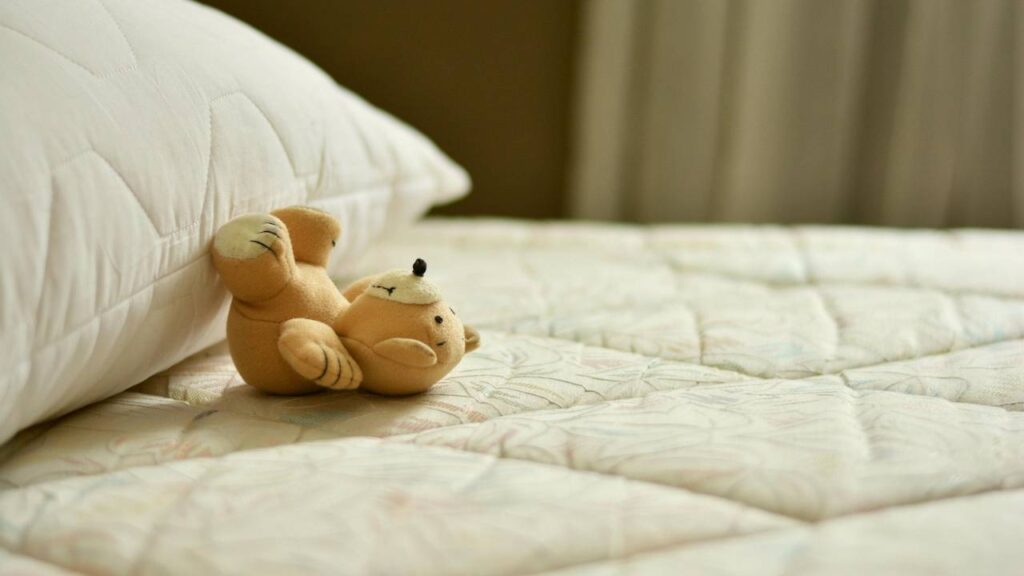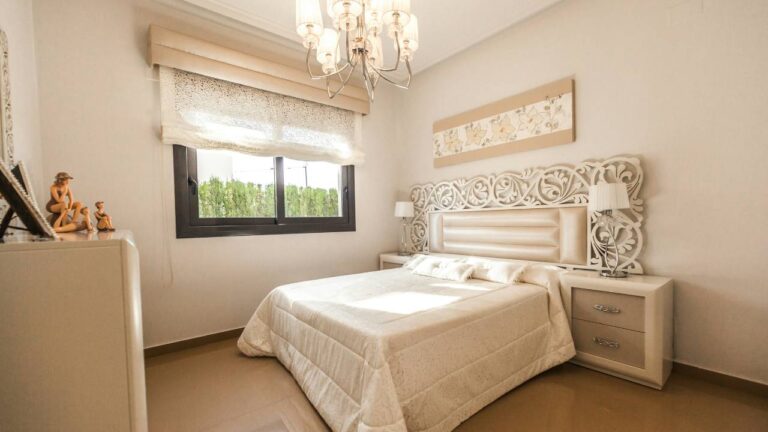Contract beds are purpose-designed furnishings for commercial environments such as hotels, care homes, and student accommodations, and are governed by stricter legal standards than those required for beds in private homes due to enhanced safety, durability, and regulatory expectations. Whether placed in a hotel or care facility, contract beds are essential for commercial use because they fulfil specific legal, safety, and functional obligations. This article explains the critical legal requirements for contract beds in both the UK and Ireland, helping businesses to understand what compliance entails.
Fire Safety Standards and Flammability Requirements

Contract beds supplied in the UK must meet the requirements set by the BS7177 standard. This regulation specifies testing methods for the flammability of mattresses, bed bases, and other upholstered items used in commercial settings.
The BS7177 standard uses classifications to indicate the level of fire resistance needed based on the environment. For most contract settings, such as hotels and care homes, a medium hazard rating is required, which includes the Crib 5 standard.
Crib 5 is a specific flammability test that uses a wooden crib filled with lint to simulate ignition on the surface of the product. Passing the Crib 5 test demonstrates that the mattress or bed base resists ignition from this source, making it suitable for contract environments.
In Ireland, the relevant standard is the Irish Standard IS 419, which outlines similar flammability requirements for mattresses and upholstered products in commercial premises. Businesses must provide evidence such as certificates of compliance from manufacturers or test reports to demonstrate adherence to either BS7177 or IS 419, depending on jurisdiction.
Fire regulations apply not only to the surface fabrics but also to fillings and internal materials of both mattresses and bases. Products must be labelled accordingly to indicate compliance with the required flammability standards.
Failure to comply with fire safety requirements can lead to significant liability for businesses, including prosecution, fines, or closure. In the case of a fire, insurance cover may be invalidated if contract beds do not meet legal standards.
Structural Integrity and Usage Durability
A contract bed in the UK and Ireland must conform to strict requirements for structural integrity. It is expected to withstand frequent use and support increased loads typical in commercial environments such as hotels, care homes, and other hospitality sectors.
Manufacturers and suppliers must ensure that beds meet the standards for load-bearing capacity. Beds are often subjected to rigorous durability testing, simulating years of frequent use. These cycles are designed to confirm the bed’s frame and fixings will not fail under repeated pressure.
The relevant benchmark is British Standard BS EN 1725, which covers safety, strength, and durability for domestic beds and frames. Products intended for contract use must comply with these standards, showing evidence of testing for multiple usage and weight cycles as outlined in the legislation.
Attention to these standards has direct implications for warranty terms and liability. Businesses procuring contract beds must carry out due diligence by demanding compliance certification, as failure to meet required specifications may lead to void warranties and increased legal exposure.
Contract purchasers and suppliers have a legal obligation to ensure that beds supplied can endure their intended volume of use. Proper adherence to product safety regulations is not only a statutory requirement but also a protection against future liability and claims.
Health and Hygiene Compliance in Care and Hospitality Settings

Legal requirements for beds in hospitals, care homes, and hostels demand strict adherence to hygiene and infection control standards. Regulations specify that contract beds must be constructed using wipe-clean surfaces and moisture-resistant materials to minimise the risk of contamination and support regular disinfection.
Mattresses and covers are often designed using anti-microbial fabrics to limit the spread of bacteria and viruses. In healthcare settings, beds must comply with NHS infection control guidelines, which set out the frequency and methods for cleaning, as well as the types of approved cleaning agents.
Hospital staff are expected to follow detailed cleaning protocols after each patient discharge. In care homes and hostels, protocols also require consistent cleaning schedules and immediate attention to spills or soiling. Care homes must meet both EU product directives and local standards for health and safety compliance in Ireland, particularly when beds are used by vulnerable residents.
While UK hygiene guidance is driven by Care Quality Commission (CQC) regulations, Health and Safety Authority (HSA) regulations play a central role in Ireland. The approach to material standards, cleaning practices, and audit trails tend to be similar, but each country has specific guidance to address local public health requirements.
Documentation, Labelling and Certification Requirements
Manufacturers and suppliers of contract beds in the UK and Ireland must provide the necessary documentation to demonstrate legal compliance. This includes clear labelling on each bed to show that it meets all relevant British and Irish standards.
A CE mark and a supplier’s declaration of conformity are mandatory for beds that are subject to harmonised European standards. These documents act as formal proof that the product complies with specific safety and performance requirements.
Fire safety remains a primary concern for contract beds. The product must carry a valid fire safety certificate proving compliance with BS 7177: Crib 5 regulations. The certificate should state that the bed has passed the relevant fire tests for use in commercial and public environments.
Manufacturers need to maintain detailed records for each batch, including batch numbers and testing documentation. Traceability is essential, both for meeting inspection requirements and for supporting insurance claims if issues arise.
Buyers can verify compliance by checking the bed’s labels for the CE mark, fire safety certification, and batch identification. They can also request copies of the supplier’s declaration and certificates before completing a purchase to ensure all legal obligations are met.
Understanding Your Legal Responsibilities as a Buyer

Business owners such as hoteliers and care home operators must understand the legal obligations when purchasing contract beds. Beds used in commercial environments fall under strict regulations regarding safety, fire resistance, and suitability for frequent use.
Employers are required by law to provide safe environments for staff and guests. This includes ensuring that all beds meet standards set by British and European legislation. Workplace health and safety regulations obligate buyers to actively assess and manage risks connected to the use and maintenance of beds.
It is essential to carry out risk assessments before selecting beds for commercial settings. Buyers should choose reputable suppliers that can provide certification and test results, verifying compliance with contract standards.
Choosing trusted suppliers such as King Koil—renowned for manufacturing contract beds tailored specifically for the hospitality industry—can give businesses confidence that their purchases meet all legal and safety requirements.
This added assurance reduces the risk of non-compliance and simplifies procurement by aligning with fire safety, structural integrity, and hygiene regulations.
Due diligence is a key expectation. Procurement teams must not only check legal and safety documentation but also investigate suppliers’ reputations.
Being thorough in the selection process protects the business and its stakeholders from unnecessary risks and potential liabilities. Careful attention at each step of procurement helps create safer and more compliant environments for both staff and guests.
Conclusion
Meeting the legal requirements for contract beds across the UK and Ireland is essential for any commercial operation. Adhering to legislation not only ensures the safety of users but also protects businesses from legal and financial risks. Safety, compliance, and accurate documentation are mandatory aspects of procurement and cannot be overlooked. Engaging with specialist suppliers familiar with UK and Irish regulations is highly advisable to maintain proper standards and peace of mind.
Additionally, businesses aiming to meet both regulatory and environmental expectations should consider investing in sustainable contract beds—products designed not only for compliance but also for reduced environmental impact, longer lifecycles, and improved operational efficiency.
